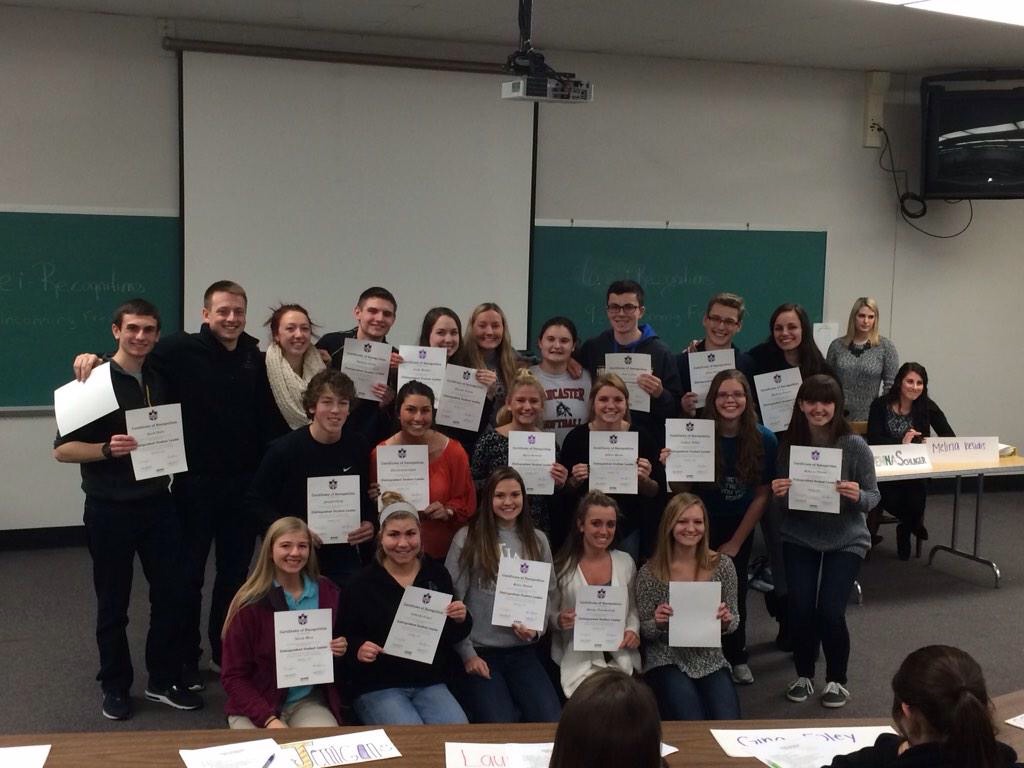Here at Lancaster Central High School in Lancaster, NY, more than 300 of our students have been recognized through the National Association of Student Councils’ Distinguished Student Leader Program over the years. As the school’s Student Union (what we call our student council) adviser and co-director of our Leadership Academy, I’m proud that we’re a leader in using this national program to help our students become young leaders.
We’ve had leadership classes since the late 1980s, and we built on those to start our Leadership Academy. It’s a three-year course of study, almost like a major in college. In the early years, we focused a lot on project planning, but we also realized our students weren’t gaining some important skills, like how to talk to people on the phone, create simple budgets, or write a memo. We built in those skills to help our students become even better prepared to run large projects. At the same time, we connected the curriculum to the Distinguished Student Leader Program to reinforce those skills.

Typically, we have about 75 students—sophomores, juniors, and seniors—in the academy. And all of them will receive recognition through the program by the time they graduate. They are basically completing the requirements for the program as part of their classroom curriculum.
The majority of our academy students go on to college. It’s not necessarily a determining factor in admissions, although it does look good on a resume. But what we’ve found is that these students are significantly better prepared for college-level work than students who haven’t been exposed to the program. They definitely can lead groups of other students, which many professors expect.

Our students are also willing to put in the effort, which is something we say to them when they apply. Even with that reminder of challenging work, we get about twice as many students applying as we have space for. In addition, students complete 100 community service hours over the three years in the program, so they are also out in the community finding their passion.
The students who participate in our program tend to be more altruistic and self-starters. They also tend to pursue careers as community activists and teachers and other roles that are focused on helping people. In fact, a couple of our academy graduates are now teachers here. But no matter what profession they pursue, leadership skills are always needed.
I’ve run workshops about our academy at NASSP LEAD conferences. One point I really emphasize is that the Distinguished Student Leader Program is great for teachers or any school staff looking to build a leadership program. It doesn’t have to be a full academy like ours. The program offers a ready-made curriculum that you can use to build or enhance a course. This gives you a comprehensive set of materials on how to help your students build leadership skills and how they can use those skills in your school.
Another thing I tell educators interested in the program is that they need to make a connection with their building administration and tell them how these student leaders can make their jobs easier. Our students, for example, run our eighth-grade information sessions. They run our transfer student program. They run our freshman orientation program. Basically, they are running a lot of programs that assistant principals run in other schools. So, this can be a real benefit to schools because principals and assistant principals already have heavy workloads. It also helps promote a positive school culture because students are leading some programs. That’s good for the school and great experience for the students.


